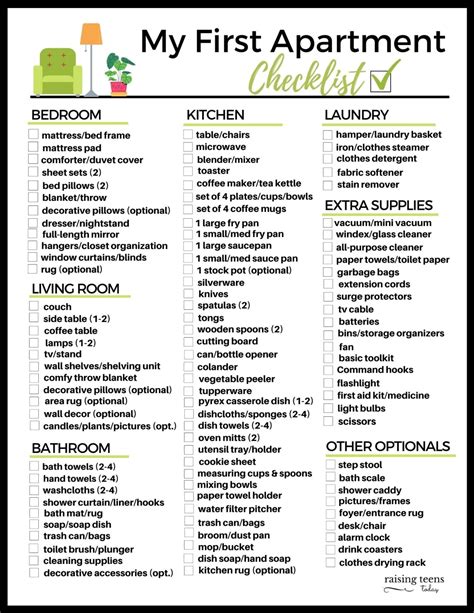Introduction

Renting an apartment at 17 is an attractive prospect for many young adults seeking independence and privacy. However, the legal complexities and financial responsibilities associated with such a move can be daunting. This comprehensive guide will delve into the feasibility and requirements of obtaining an apartment as a 17-year-old, empowering you with the knowledge to make informed decisions.
Legal Considerations
The legal age of majority varies by state, with most states setting it at 18. This means that individuals under 18 are considered minors and are subject to different legal protections. As such, renting an apartment at 17 typically requires parental consent or the appointment of a legal guardian.
Financial Requirements
Securing an apartment entails significant financial obligations, including rent, utilities, and security deposit. Landlords typically require proof of income and employment to assess a tenant’s ability to cover these expenses.
According to the National Low Income Housing Coalition, the average two-bedroom apartment rent in the United States is $1,221 per month. This figure excludes utilities, which can add an additional $200-$300 monthly.
Common Mistakes to Avoid
- Rushing into a lease: Take ample time to research different apartments, read the lease carefully, and ensure you fully understand your obligations.
- Cosigning without understanding the risks: Cosigners assume legal responsibility for the lease and may be liable for unpaid rent or other damages.
- Overlooking background checks: Landlords often conduct background checks to verify your identity, credit history, and rental history. Address any potential issues beforehand to avoid disqualification.
Alternatives to Leasing
If renting an apartment at 17 is not viable, consider the following alternatives:
- Living with roommates: Sharing an apartment with others can reduce financial and personal responsibilities.
- Subletting from a college student: Subletting during school breaks can provide temporary housing at reduced rates.
- Home sharing: Platforms like Airbnb and Vrbo offer short-term rentals that can supplement your living situation.
Motivations for Obtaining an Apartment at 17
- Independence and privacy: Renting an apartment offers a greater degree of independence and control over your living space.
- Proximity to school or work: An apartment can be situated closer to educational or employment opportunities.
- Escape from a difficult home environment: For individuals facing challenging family situations, renting an apartment can provide a refuge.
Pain Points Associated with Obtaining an Apartment at 17
- Legal restrictions: The need for parental consent or a legal guardian can hinder efforts to secure an apartment.
- Financial challenges: The high cost of rent and utilities can pose a significant financial burden for young adults.
- Limited options: The availability of apartments suitable for 17-year-olds may be limited, especially in areas with strict rental regulations.
Comparison of Options
| Option | Pros | Cons |
|---|---|---|
| Renting an apartment | Independence, privacy, proximity to desired locations | High cost, legal restrictions, financial responsibility |
| Living with roommates | Shared expenses, companionship | Privacy limitations, potential conflicts with roommates |
| Subletting from a college student | Temporary housing, reduced rates | Short-term availability, landlord restrictions |
| Home sharing | Flexibility, lower cost | Shared living space, potential privacy concerns |
Conclusion
Obtaining an apartment at 17 is possible but requires careful planning and consideration. Legal restrictions, financial obligations, and finding suitable housing options present challenges. By weighing the pros and cons and exploring alternative options, individuals can make informed decisions that align with their needs and circumstances. Remember to approach the process with a responsible mindset and seek guidance from trusted adults as needed.
